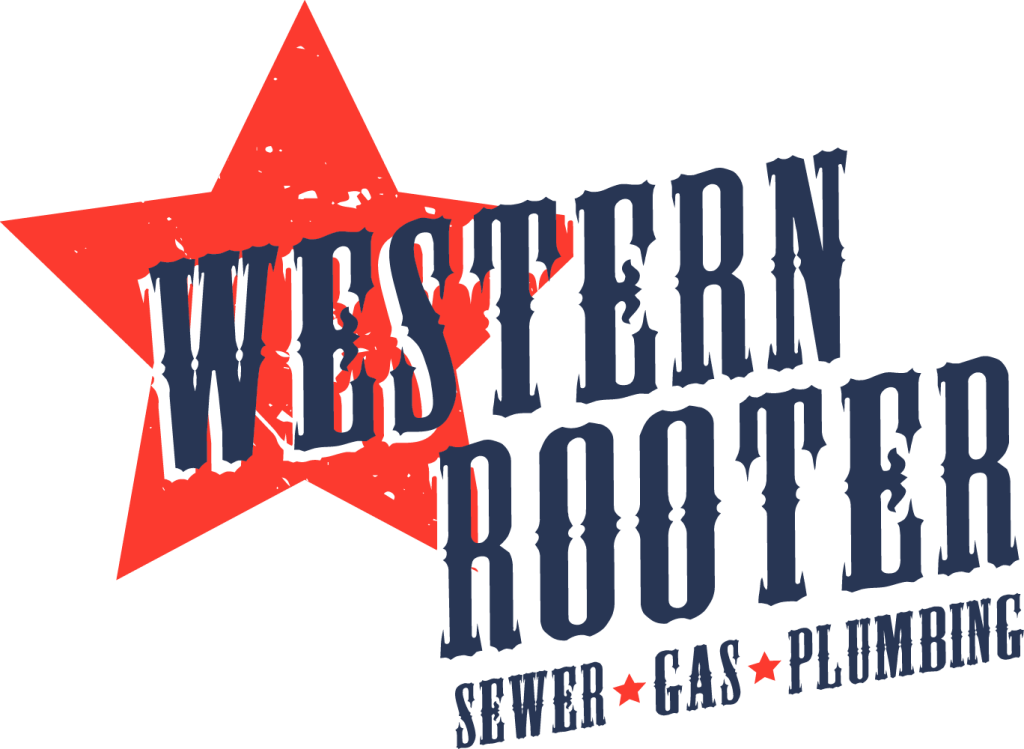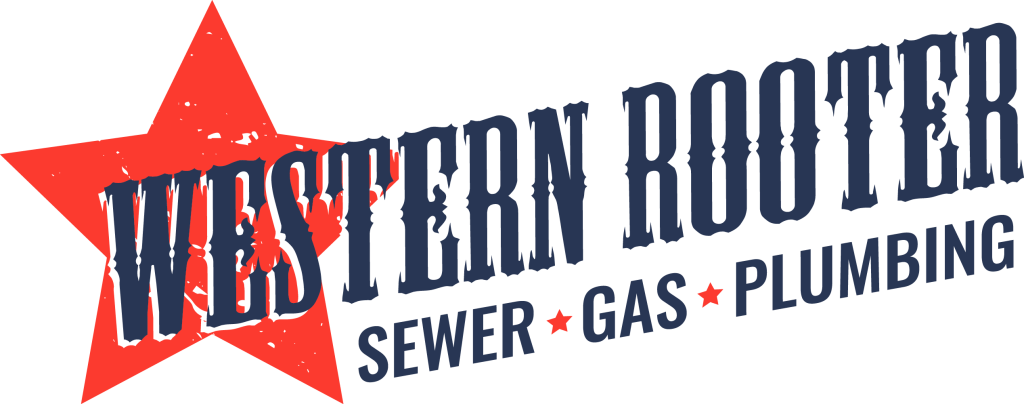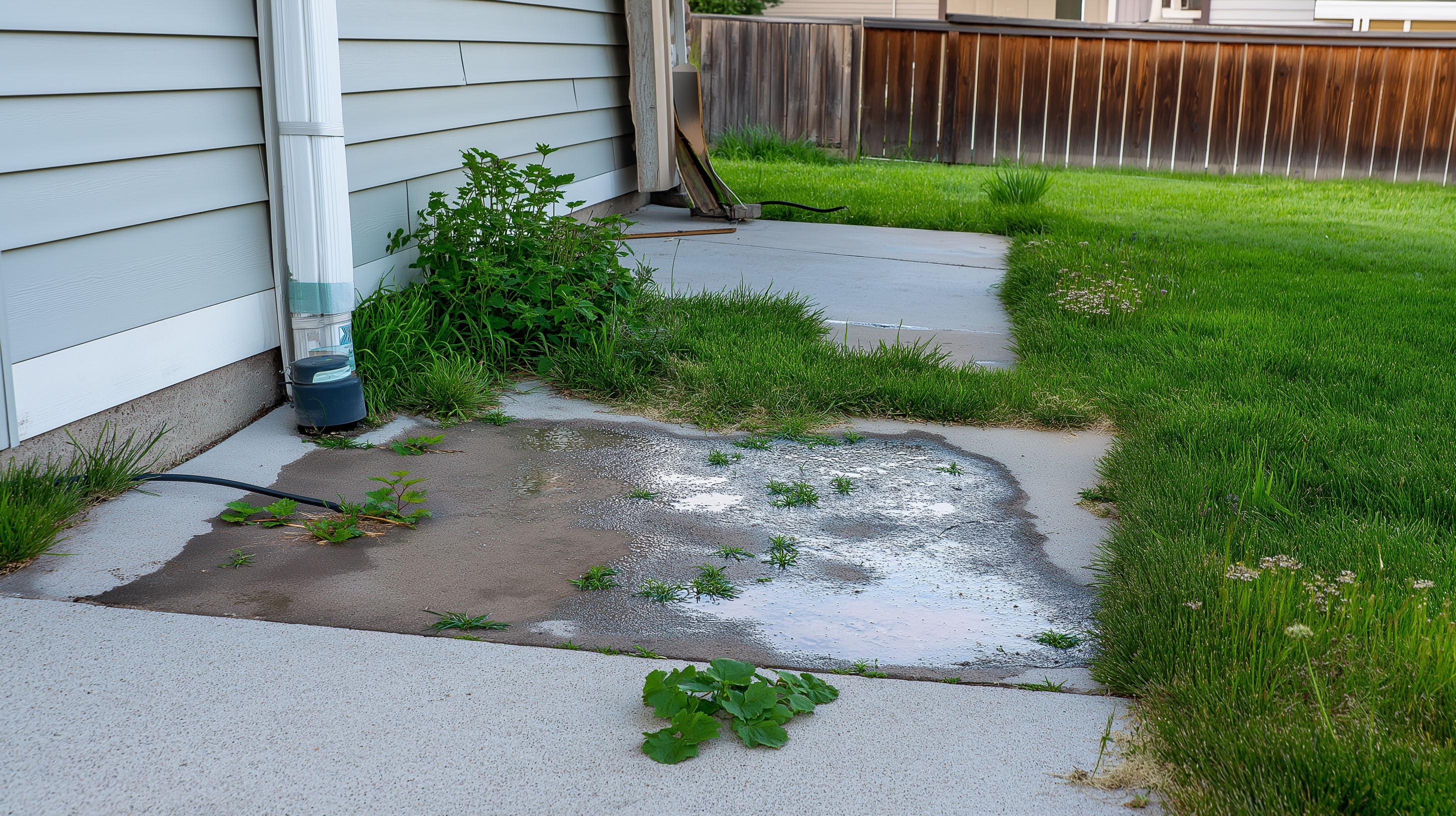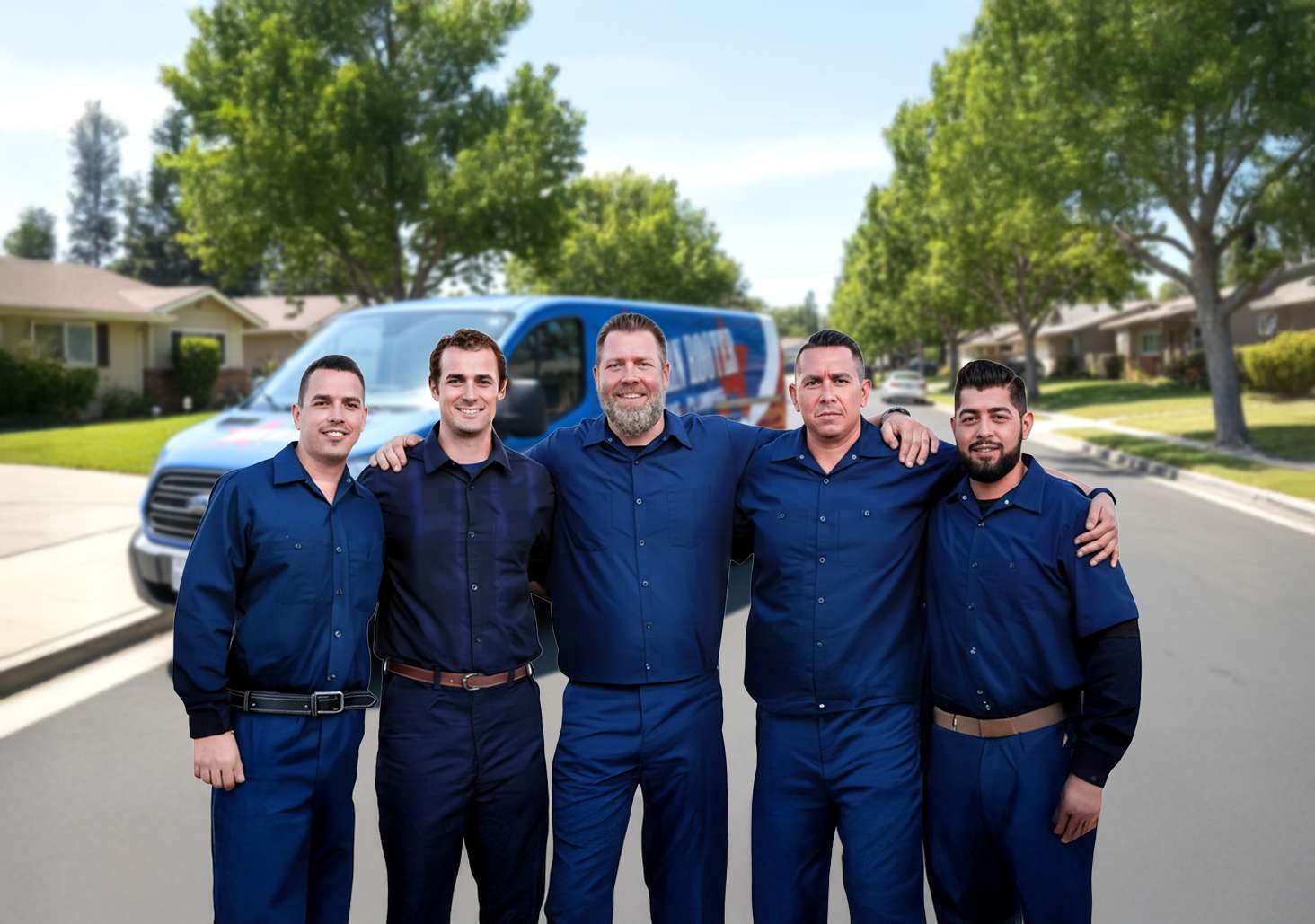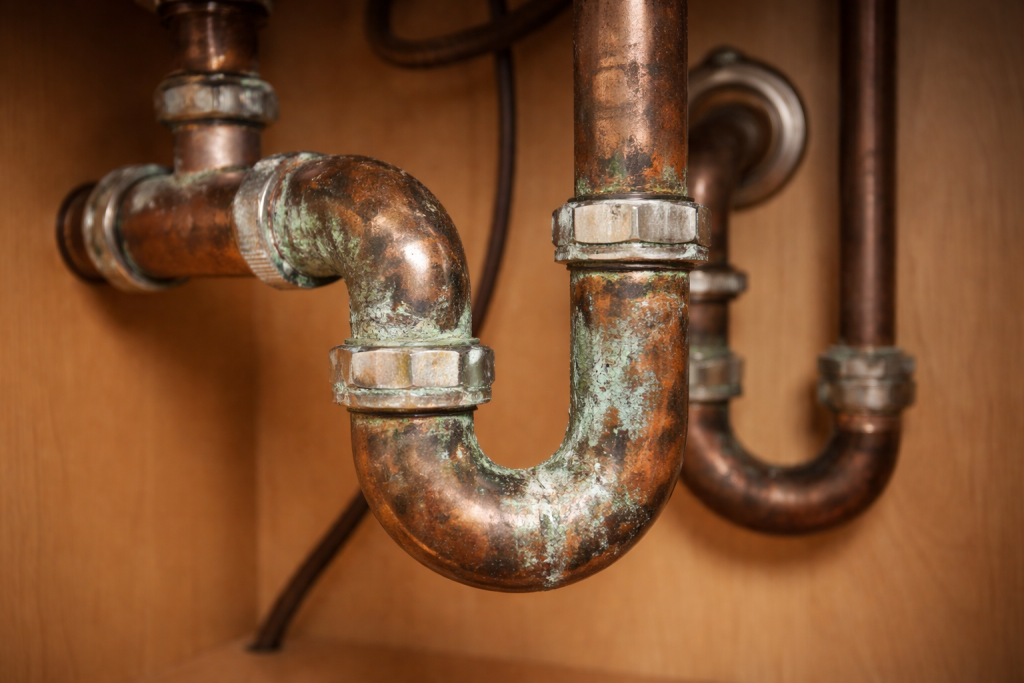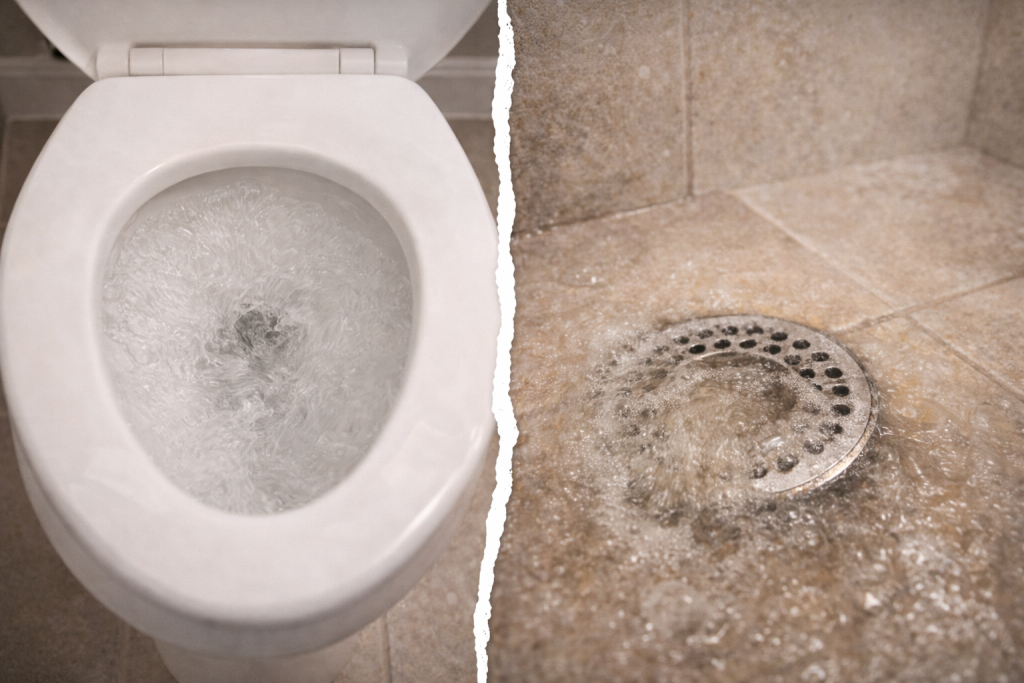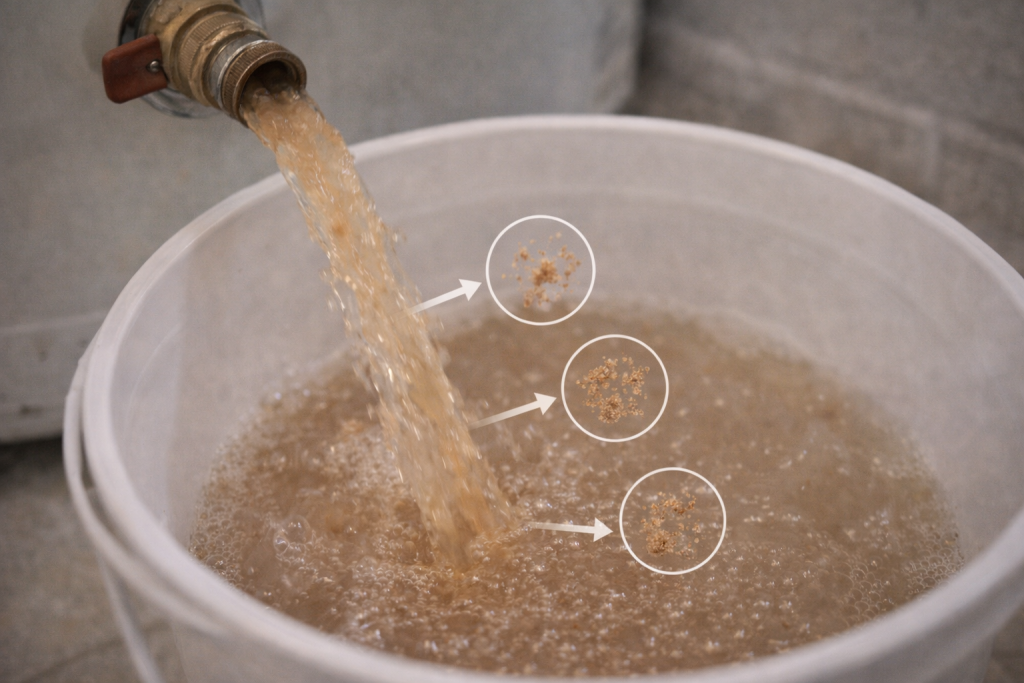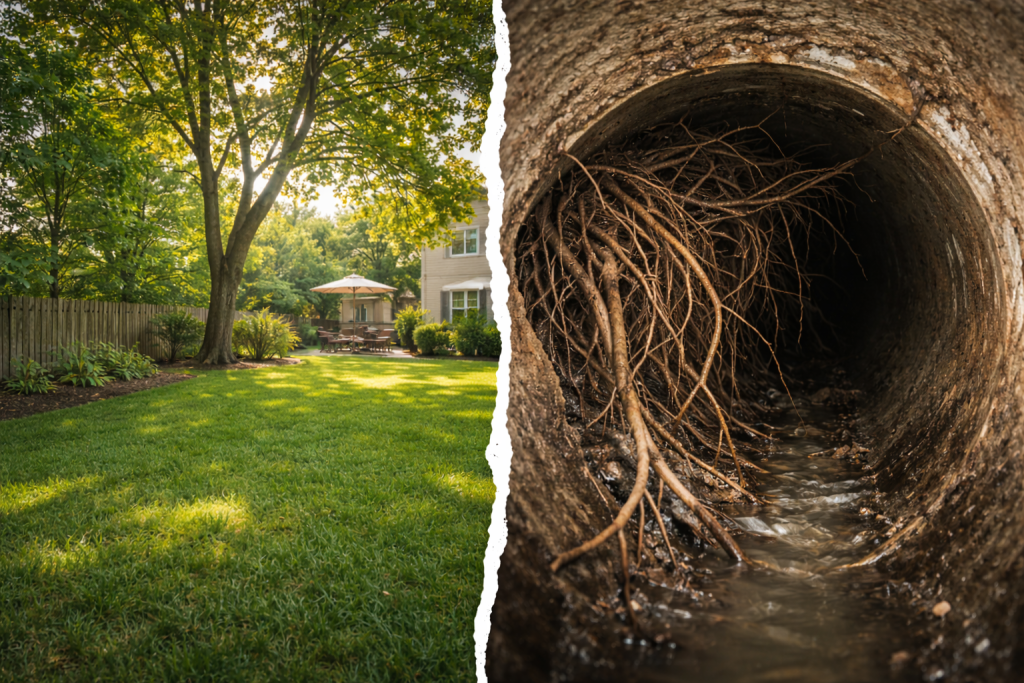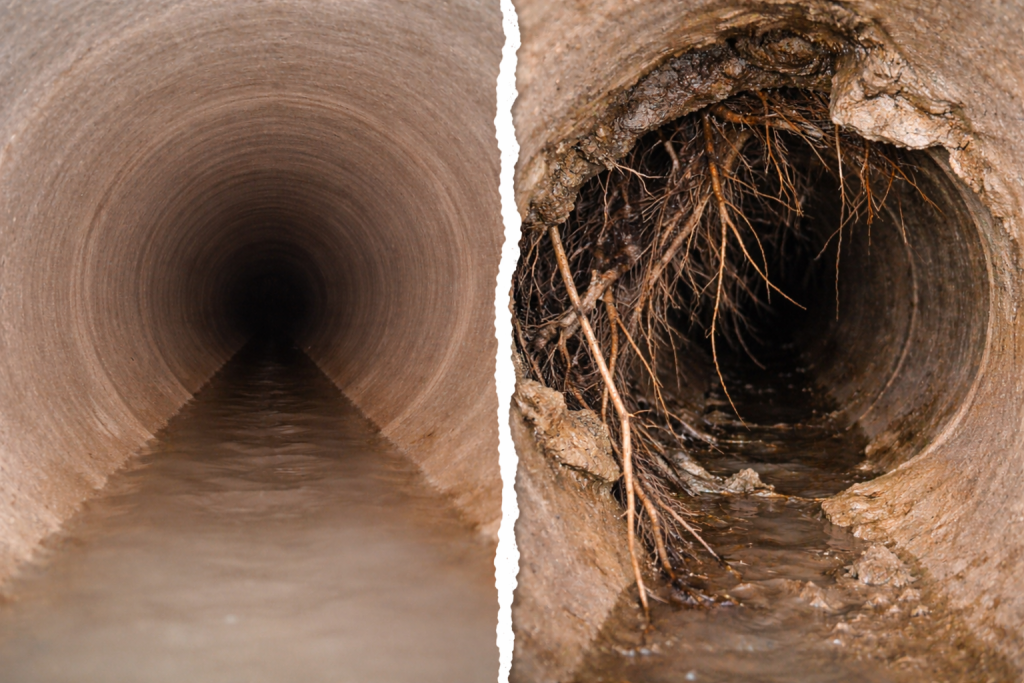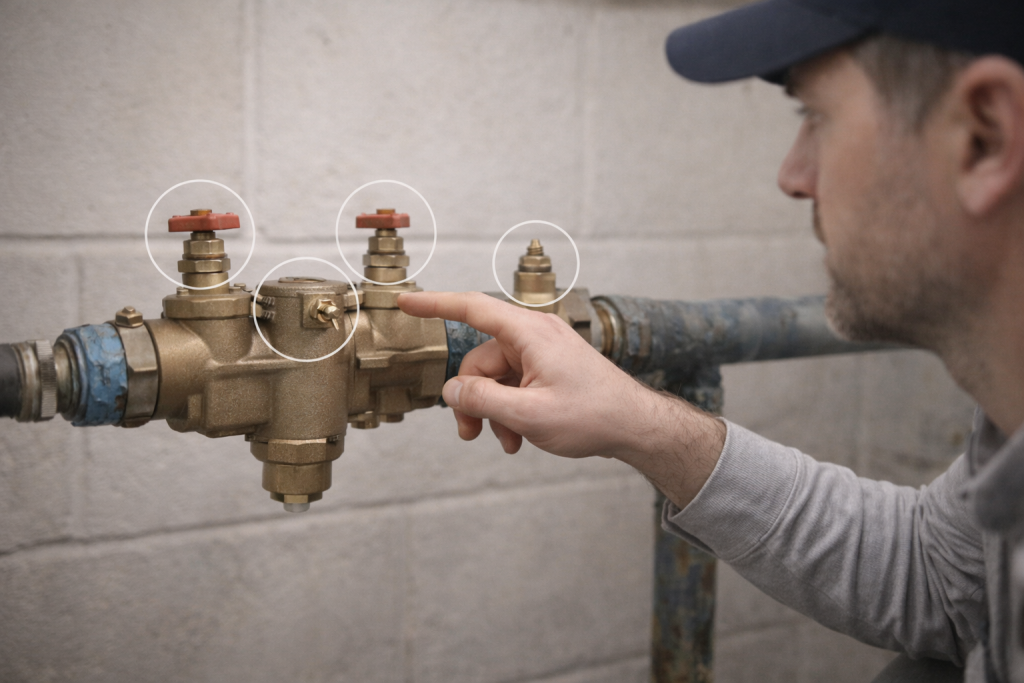Your home could waste up to 90 gallons of water daily from an undetected leak under the foundation. Most homeowners miss the early warning signs of a slab leak until their property suffers extensive damage.
Water pipes beneath your home’s concrete foundation can develop slab leaks. This problem affects many properties since 63.2% of new single-family homes have slab foundations. The initial signs might seem minor, but the damage can devastate your property. Repair costs range from $630 to $6,750. Experts warn that these leaks can weaken your home’s structural integrity and create serious problems like mold growth if ignored.
Let us help you spot the significant warning signs that could save thousands in repairs. You’ll learn the right time to act before a small issue turns into a costly nightmare.
Early Warning Signs of a Slab Leak
Your home might have a slab leak, and catching it early can save you from getting pricey repairs and major damage. Here are three telltale signs that could point to this hidden problem.
Unexplained Increases in Water Bills
A sudden jump in your water bill without any changes in how you use water usually points to a slab leak. These leaks can waste up to 90 gallons of water each day, quietly draining your resources. You should keep an eye on your monthly usage patterns to spot potential leaks. Even a tiny leak can have a big effect – typical household leaks waste about 90 gallons daily.
Subtle Changes in Water Pressure
Low water pressure throughout your house is a vital warning sign. You might notice these issues:
- Weak shower streams
- Slower-filling sinks and toilets
- Longer wait times for appliances to fill with water
- Uneven water flow between different fixtures
The pressure drops because water escapes from broken pipes under your foundation. This problem usually starts small and gets worse as the leak grows.
Unusual Sounds in Your Plumbing System
Strange noises from your plumbing need your attention right away, especially when you’re not using any water. Listen for these sounds:
You might hear a constant hissing or whooshing noise that’s easier to notice during quiet times. All the same, you’ll need to listen carefully to catch these sounds – turn off all water-using appliances and pay attention, especially near spots where water lines meet your foundation.
A simple test can confirm these warning signs. Just turn off all water in your home and check your water meter. A moving meter with no active water use likely means you have a leak. Quick action on these signs can stop bigger problems from developing.
Advanced Warning Signs to Watch For
Physical changes in your home can show a worsening slab leak beyond the original warning signs. Water damage might have already started when you notice these advanced symptoms.
Hot Spots on Your Floor
You might find something strange when walking barefoot on your floor – some areas feel unusually warm. These hot spots usually line up with hot water pipes leaking under your foundation. The warm areas are more than just signs of a leak. They can be dangerous for young children and pets who spend time on these heated spots.
Musty Odors and Dampness
A slab leak gets worse when you smell persistent musty odors. These smells come up through tiny pores in the concrete slab. Regular household smells go away quickly, but these musty odors stay and get stronger over time.
Water under your foundation creates perfect conditions for mold and mildew growth. These can start growing in just 24 to 48 hours after water exposure. You’ll notice the dampness in several ways:
- Dark or discolored patches on floors and carpets
- Persistent wetness near walls or baseboards
- Unexplained moisture in carpeting
- Soggy or soft spots in flooring materials
Visible Floor and Wall Changes
Structural changes become clear as water seeps upward. Wood floors soak up much water even before you can see the dampness. The moisture ends up causing noticeable changes:
Different flooring materials react to long-term water exposure in their own ways. Carpets get dark stains, hardwood warps, and laminate floors peak at the edges. On top of that, you might see gaps between the floor and walls when the slab starts sinking into soil that water has eroded.
These advanced warning signs point to major water damage under your home. Hot spots might seem like a minor issue at first. When you add musty odors and visible changes, they tell the story of a slab leak that needs fixing right away.
Critical Signs of Severe Damage
Slab leak damage can destroy your home’s stability and put your family at risk. These warning signs just need quick professional help to stop catastrophic failures.
Foundation Cracks and Movement
Water leaks under your slab will show up as cracks and movement in your foundation. Water wears away the soil under your foundation and creates empty spaces underneath. This weakens your home’s structural integrity. These empty spaces make your foundation sink unevenly and stress builds up throughout your house. You’ll notice this stress through:
- Cracks in walls and floors that keep getting bigger
- Doors and windows that stick or won’t shut right
- Floors that slope or feel uneven
- Bumps in the floor from soil pushing up
Mold and Mildew Growth
Toxic black mold, specifically Stachybotrys chartarum, runs on wet concrete slabs. This dangerous mold can cause serious health problems like:
- Breathing troubles and wheezing
- Headaches that won’t go away and feeling tired
- Body aches you can’t explain
- Problems with memory
- Skin rashes and allergic reactions
Mold spreads faster through drywall and other materials, often hiding behind your walls. You’ll usually smell a musty odor first, which tells you there’s lots of hidden mold.
Structural Integrity Issues
Water leaks under your slab can wreck your home’s structure over time. A small leak won’t stay small for long. As more water builds up, you’ll face bigger problems:
Your concrete gets weaker until the foundation fails. The soil around it becomes loose, and your whole house starts to move. These problems can cost thousands to fix.
The scariest part? Structural damage often sneaks up on you until it’s too late. Of course, if you don’t fix these issues, you risk:
- Your foundation completely failing
- Your house becoming unstable
- Your property value dropping
- Your family’s safety being at risk
These serious symptoms mean your house needs a professional to look at it right away. If you ignore these warning signs, a fixable problem could reshape the scene into a catastrophic failure.
Understanding the Financial Impact
A slab leak’s cost goes way beyond the original repair bills. Property owners face a cascade of expenses that can drain their budget.
Immediate Repair Costs
Slab leak repairs need a big upfront investment. Detection costs range between $150 to $600, and repairs can run from $630 to $4,400. We based the final cost on the chosen repair method:
- Simple pipe repairs: $200 to $2,000
- Under-slab plumbing work: $500 to $4,000
- Complete slab replacement: $3,600 to $8,000
Labor costs add another $45 to $200 per hour. This makes immediate repairs a big investment.
Long-term Structural Damage Expenses
Without doubt, waiting to fix the problem leads to bigger costs. Water damage fixes can hit $15,000 once structural problems show up. Foundation repairs usually cost between $2,000 to $7,500.
Mold cleanup, which often follows long-term water exposure, adds $1,500 to $6,000 to the bill. These long-term problems often cost more than fixing things right away, making quick action vital to protect your wallet.
Impact on Property Value
Slab leaks can devastate your property’s value. Unfixed water damage drops a home’s market appeal by a lot. Buyers looking at the house just need big price cuts when they find:
- Water damage affecting the structure
- Past foundation repairs
- History of plumbing problems
- Possible mold issues
The money hit gets worse when buyers walk away or try to negotiate prices nowhere near market value to cover repairs. Water damage claims can bump up insurance premiums, creating ongoing costs.
Commercial property owners face even bigger risks. Business disruptions and possible liability issues make the financial hit even worse. Quick action remains the most affordable approach since repair costs usually snowball with delays.
When and How to Take Action
A small slab leak can quickly turn into a major disaster. You need to know how to spot and handle these leaks to protect your home.
DIY Detection Methods
You can use several reliable home testing methods to spot slab leaks. The water meter test stands out as the quickest way to check for leaks yourself. Here’s how you do it:
- Turn off all water sources and note the meter reading
- Wait 15-20 minutes without using any water
- Check the meter again – movement means you might have a leak
Your eyes and ears can help too. Listen for running water sounds when everything’s turned off. Your nose can also tell you something’s wrong – musty smells often point to hidden water problems.
Professional Assessment Options
Plumbers have high-tech tools to find leaks with precision. These tools include:
Electronic leak detection equipment that finds exact leak spots through sound amplification. They also use line-tracing equipment and water line video inspection services to track down the source.
A professional inspection runs between $150 to $400. This money spent now can save you thousands in repairs later.
Emergency Response Guidelines
You should take these steps right away if you suspect a slab leak:
- Turn off your home’s main water supply to stop more damage
- Take pictures of any visible damage for insurance
- Clean up extra water with mops, towels, or wet-dry vacuums
- Call plumbers who know how to fix slab leaks
The repair approach depends on where the leak is and how bad it gets. You have three main options:
Trenchless Repair: This needs minimal demolition and uses epoxy pipe liners. Most jobs wrap up within hours
Re-piping: New pipes go in when multiple spots have problems. This takes several days
Tunneling: This works best to save expensive flooring. Workers dig tunnels under your home
Repairs take anywhere from a few hours to three days. You’ll pay between $2,000 to $6,000. Foundation fixes might add $250 to $800 for cracks and $1,000 to $3,000 for leveling.
Plumbers use advanced tools like infrared thermography and electronic amplification to find leaks without tearing up your property. They’ll pick the best fix based on where the leak is and how serious it looks.
Regular checks and quick action can save you money and prevent big headaches. Waiting too long means harder fixes and bigger bills.
Conclusion
Slab leaks pose a real danger to homes and businesses. These repairs can get pricey, often costing thousands of dollars. Small hidden leaks grow fast and create major structural problems that put your property’s value and family’s safety at risk.
You can best protect against devastating water damage by catching these leaks early. A simple water meter test at home might reveal potential problems before they turn catastrophic. Professional inspections are a great way to get reliable identification and fixes for slab leaks.
Every day counts with foundation leaks. Repair costs climb and property damage worsens the longer you wait. Don’t wait to see water damage signs – regular plumbing checks help catch problems early.
Western Rooter’s team of experts stands ready 24/7 for emergency slab leak detection and repairs in Los Angeles and San Bernardino Counties. Get your free estimate today and shield your property from expensive water damage.
